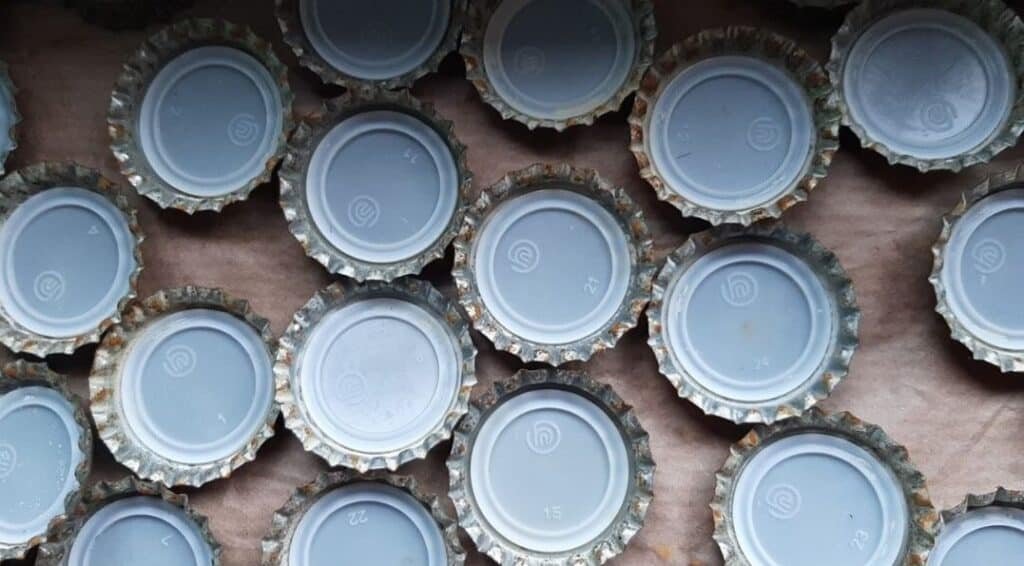
There are notorious stories about rust and finding some on the caps you plan to bottle with isn’t a pleasant observation. After all, who in the sane mind would want their homebrew to get in contact with rust?
Recently, I was ready to bottle my stout and cider and already called a friend for help only to find out that in the meantime all my caps got rust on them. Hopefully, this isn’t as big of a problem as you may think, but it took me a second guess as this was the first time I had rust on my caps.
You can still use rusted caps to bottle your homebrew as the brew won’t get in direct contact with the rusted part due to the protection of a plastic inner side of a cap that doesn’t allow contact between the liquid in the bottle and the rest of the cap which is made from metal.
I bottled my beer and cider with a rusted cap and didn’t notice any drop in the quality of my homebrew nor did anyone’s health get compromised.
Are brews with rusted caps dangerous?
As I mentioned, your beer won’t get in direct contact with the rust because there’s plastic protection in a cap that can’t collect rust. However, if the beer somehow got in contact with rust the worse that could happen is the unwanted iron taste, but yet for it to be noticeable there would need to be plenty of rust dissolved in the beer which can hardly be the case.
Rust isn’t dangerous as it’s simply a corroded metal, and the stories that tell about how easy it’s to get tetanus from rust are overexaggerated.
There won’t be any additional bacteria on a rusted cap as there would be on a cap without rust.
For tetanus to take place there would need to be contact with bacteria first as tetanus won’t manifest itself on rust. The tetanus bacteria is often found in soil, so unless the rusted piece of iron or steel was in contact with the earth, the chances it contains tetanus are almost non-existent.
How do caps become rusted?
Caps will become rusted if you soak them too long in a liquid such as water or sanitizer solution and later let them get in contact with oxygen.
You should either only use as many caps as you plan to use and keep the rest in the package or dry the caps as soon as you can to reduce the odds of rust.
Simply, any moisture in contact with oxygen on metals will result in rust.
How do you remove rust from bottle caps?
Although you can use rusted bottled caps, it’s not aesthetical and it would be better for rust not to exist at all.
You can drop the caps in vinegar and let them soak for an hour after which it will be easy to scrap the rust off the bottles with a piece of cloth.
Another solution that I find the most effective when it comes to removing the rust of metal is to use Coca-Cola. You should also soak them for at least an hour and if needed even longer as the rust should be easily washed off with water after the Coke does its job.
After that make sure you dry the caps with a hairdryer or leave them in sun for some time.
